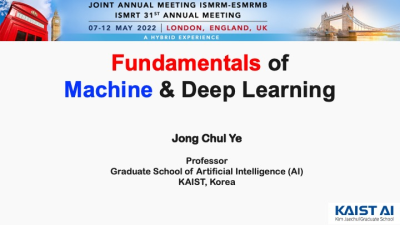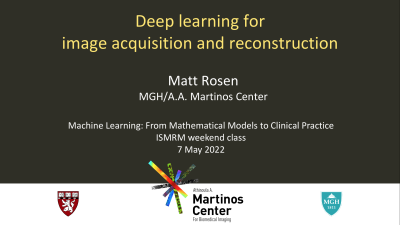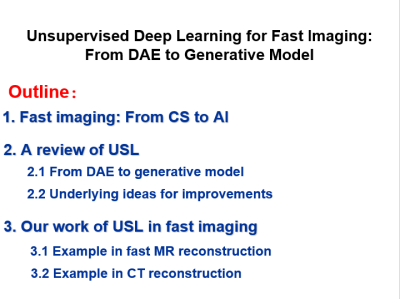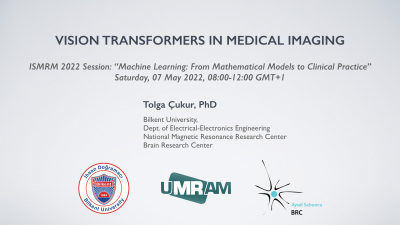Weekend Course
Machine Learning: From Mathematical Models to Clinical Practice
Joint Annual Meeting ISMRM-ESMRMB & ISMRT 31st Annual Meeting • 07-12 May 2022 • London, UK

| ML Math to Clinic I | |||
| 08:00 |  |
Fundamentals of Machine & Deep Learning
Jong Chul Ye
In this talk, we will briefly review the current trends of deep learning and explain how they have been employed in MR imaging. In particular, we review the principles of Transformer, generative adversarial nets, optimal transport, cycleGAN, noise2void, noise2score, and score-based diffusion model. MR application of these methods will be also reviewed.
|
|
| 08:25 | Machine Learning for Protocoling & Radiological Workflows
Susan Sotardi
Synopsis:
|
||
| ML Math to Clinic II | |||
| 08:50 |  |
Deep Learning for Image Acquisition & Reconstruction
Matthew Rosen
The availability of inexpensive GPU-based compute has opened the door to new strategies for the acquisition and the reconstruction of highly-undersampled imaging data. We have been developing neural network deep learning based approaches such as AUTOMAP and to leverage scalable-compute and significantly reduce the need for precision scanning hardware. These approaches are very valuable in low SNR regimes like millitesla MRI or high-b value DWI. We describe here the AUTOMAP formalism and how it can be used to improve reconstruction SNR and accuracy as well as open up the possibility of new sampling strategies.
|
|
| 09:15 |  |
Unsupervised Deep Learning for Fast Imaging: From DAE to Generative Model
Qiegen Liu
Recently studies have witnessed great progresses of generative modeling in medical imaging reconstruction like fast MRI and low-dose CT, etc. Particularly, the series of works from denoising autoencoders to denoising score matching as well as score-based diffusion model exhibits great promising performance in reconstruction quality and algorithm robustness. In this talk, we will first review the relationship among these algorithms. Then, we reveal the underlying ideas that substantially contribute to the performance improvements, such as constructing high-dimensional space and conducting on data samples with different geometrical properties.
|
|
| 09:40 | Break & Meet the Teachers |
||
| ML Math to Clinic III | |||
| 10:05 | Special Topics I: Unsupervised vs. Supervised Learning
Valentina Pedoia
|
||
| 10:30 |  |
Vision Transformers in Medical Imaging
Tolga Cukur
Deep learning models have been swiftly established as state-of-the-art in recent years for difficult medical image formation and analysis tasks such as reconstruction, synthesis, super-resolution and segmentation. A critical design consideration for model architectures is the capacity to account for representation errors that comprise both locally- and globally-distributed elements. While convolutional models with static local filters have been widely adopted due to their computational benefits, they lack in sensitivity for contextual or anomalous features. Instead, the recently emerging vision transformers are equipped with global attention operators as a universal mixing primitive for minimizing representation errors in diverse medical imaging tasks.
|
|
| ML Math to Clinic IV | |||
| 10:55 | Application in the Clinic: Predicting Phenotypes, Prognosis & Outcome
Yun Peng
|
||
| 11:20 | Clinical Outlook: Pitfalls & Promises Video Unavailable |
||
The International Society for Magnetic Resonance in Medicine is accredited by the Accreditation Council for Continuing Medical Education to provide continuing medical education for physicians.